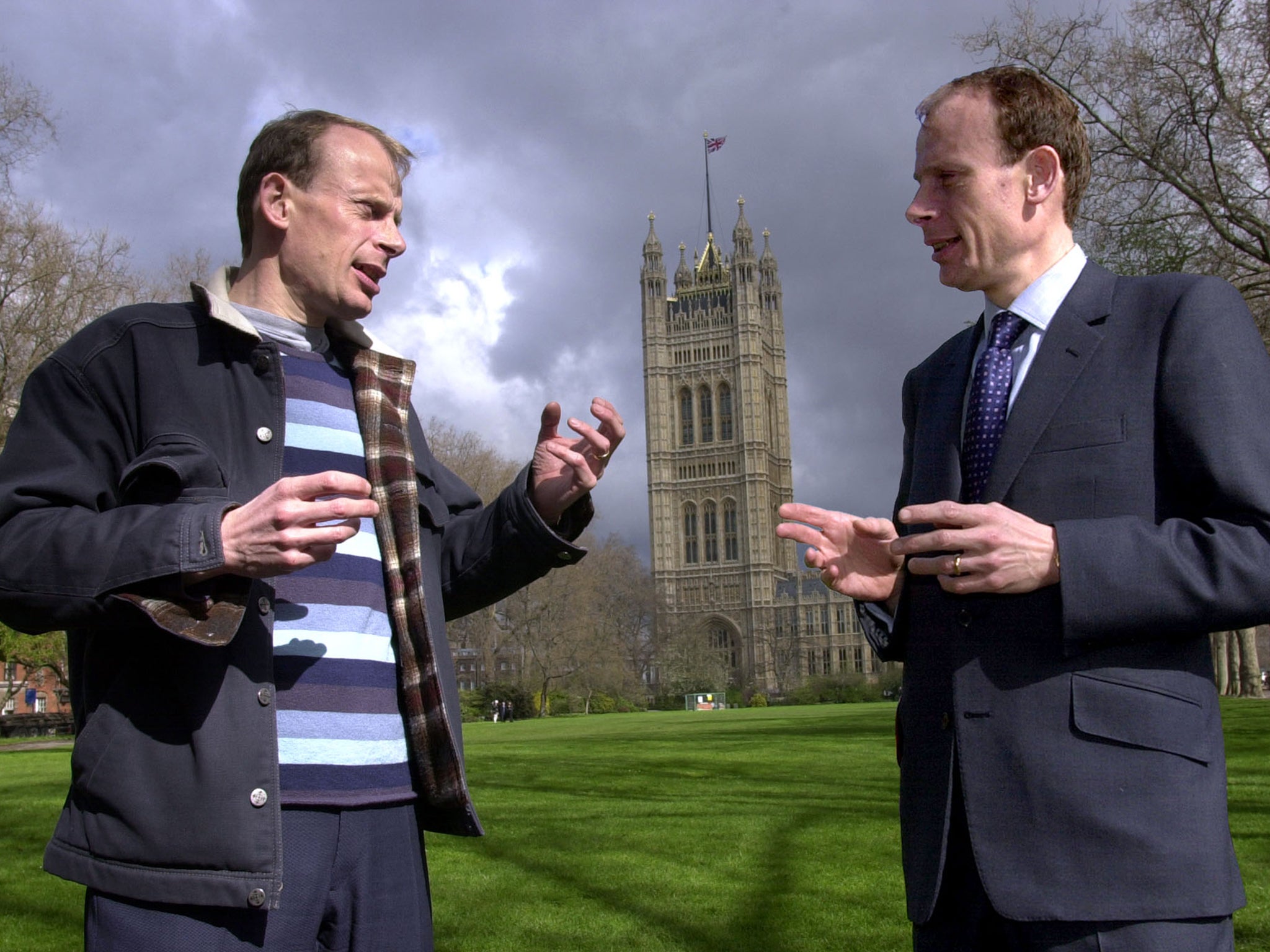An outlaw spirit imbued The Independent when it launched that made it like no other paper
Surrounded by older journalists – a dishevelled regiment of famous names – I smelt the sweet scent of freedom

Your support helps us to tell the story
From reproductive rights to climate change to Big Tech, The Independent is on the ground when the story is developing. Whether it's investigating the financials of Elon Musk's pro-Trump PAC or producing our latest documentary, 'The A Word', which shines a light on the American women fighting for reproductive rights, we know how important it is to parse out the facts from the messaging.
At such a critical moment in US history, we need reporters on the ground. Your donation allows us to keep sending journalists to speak to both sides of the story.
The Independent is trusted by Americans across the entire political spectrum. And unlike many other quality news outlets, we choose not to lock Americans out of our reporting and analysis with paywalls. We believe quality journalism should be available to everyone, paid for by those who can afford it.
Your support makes all the difference.Sod it, sod it, sod it, sod it. Things began, for me, when I was a young, green but ambitious hack, on a family holiday back home in Scotland. Christmas was coming, an open fire was crackling, and I was stretched out leafing through a copy of the FT.
I spotted a small news story enigmatically talking about the possible launch of a new broadsheet paper. No details, no name; but it would not be part of any established group. The hairs began to rise on the back of my neck.
Back in London, I made inquiries and was told that the new political editor of the mysterious new paper would be the famous, indeed notorious, Tony Bevins, ex of The Times. Loping around the Westminster beat, looking like an ageing Buddy Holly, Bevins was known for his abrasive manner, wolfish grin and ruthless thirst for a scoop. Young, impressionable journalists were warned off him: I remember Jim Naughtie, then of the Guardian, sternly warning me to have nothing to do with Bevins: “That is a dangerous man.”
Undeterred, I talked my way on to the new, six-strong (those were the days) political team; and so began the happiest years of my working life. We would be insurgents, outlaws even, breaking every rule of Westminster life, starting with the lobby system, then a pernicious and self-satisfied closed cabal. I am sure, on reflection, that at times we behaved badly. Tony egged, cajoled and provoked us to do everything we could to get stories and beat the competition. Bluster; sneak; menace; trick. I developed a truly verminous rat-like cunning and together we broke a lot of stories.
Tony also had an airy contempt for the political niceties. I remember him listening silently to a cabinet minister during the Thatcher years and then slamming the phone back on the hook with a parting shot, suggesting that the minister replaced his member in his trousers and, as it were, stopped pleasuring himself. Tony put it a little more demotically. Who was that? I asked. Tony told me. I didn’t believe him. I later checked with the minister – still with us, then very senior – and he confirmed it had indeed been him, just a little surprised, on the other end of the line.
Back in the office at City Road, there was awn almost equally unconventional atmosphere. Andreas, Matthew and Stephen, then still the best of friends, sprawled on a floral sofa inviting democratic debate on what our policy should be – for instance on Israel, for Europe, or the Royal Family…
Surrounded by older journalists – a dishevelled regiment of famous names I had looked up to, even revered, – I smelt the sweet scent of freedom. All around us were hacks chained to ideologies or, more often, the prejudices of unsavoury owners. We could make it new again. Freed from brutal commercial pressures, we could reinvent journalism itself. We could start a revolution.
Poor, deluded us. We worked frantically hard. We poured our every breath into it. But the iron laws of profit and loss, aided by grossly unfair price-cutting from The Times, did for us in the end. Takeovers, corporate feuding and the slow vice of endless cost-cutting took their toll. Good editors and some less good ones – you, Marr, stand up at the back – did their best but their best was not good enough.
In the end, what had we left? Stories that, but for us, would never have seen the light of day; many entertained, informed and loyal readers; some of the best journalistic writing in Britain in the 20th century (Ascherson, Fisk, Cockburn, Jenkins, Rentoul, Aaronovitch, McRae, Fenton, Dejevsky, Toynbee...). A new kind of front page, a small revolution in photography. And above all, lots of fun – so much fun, so much laughter. I still can’t believe it actually happened...
Andrew Marr edited ‘The Independent’ from 1996 to 1998
Join our commenting forum
Join thought-provoking conversations, follow other Independent readers and see their replies
Comments